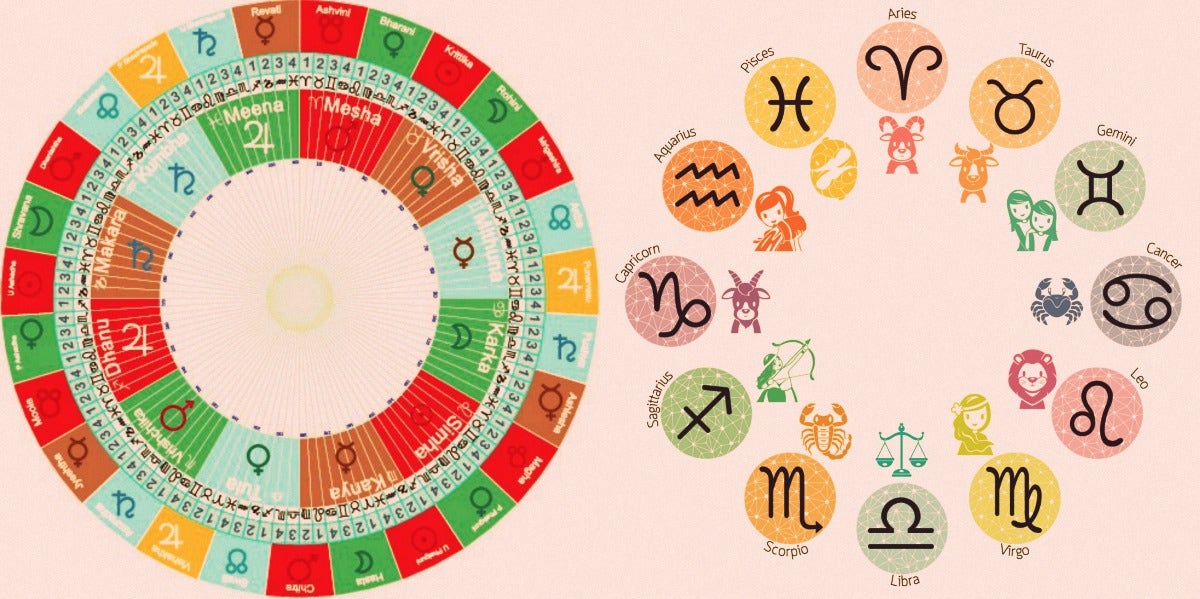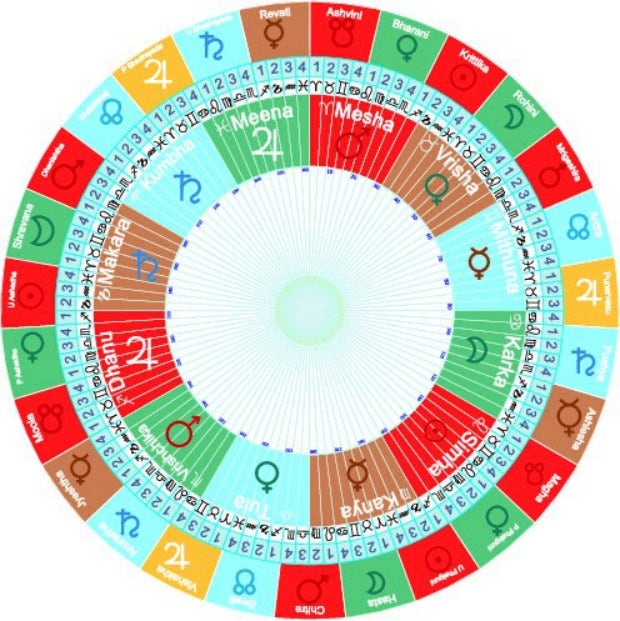What Is The Difference Between Vedic & Western Astrology?
It's more complex than you'd think.
 Shutterstock/Olga Reeb and MatoomMi
Shutterstock/Olga Reeb and MatoomMi You're probably aware that astrology is the study of the planets and how their placement at a particular time influences human events.
The astrological system most people in the United States know of and use to understand their horoscopes is Western astrology. And while it's perfectly reasonable to do so, there’s another system that approaches things a little differently known as Vedic astrology.
You may have heard Vedic astrology referred to be any of a couple of names, including eastern astrology, Hindu astrology and Indian astrology. More traditionally, it is known as Jyotisha or Jyotishya, which can be roughly translated from Sanskrit to English as “light, heavenly body.”
Vedic astrology has its roots in Hindu culture.
For the sake of keeping things simple, I’m going to leave out the more complicated details for now and focuses on how it differs from the Western (Hellenistic) astrology many of us are more familiar with.
What is the difference between Vedic astrology vs. Western astrology?
The biggest difference between Western astrology and Vedic astrology is that they use two different systems to divide up the 12 zodiac constellations within a year.
Western astrology s based on a tropical (or fixed) zodiac system that defines the year, and therefore the dates associated with each of the 12 zodiac signs, as beginning in Aries on March 21.
Vedic astrology, on the other hand, is based on a sidereal (or movable) zodiac system that uses "corrective systems known as ayanamsas [to] account for the precession of equinoxes."
Aries is also the first sign of the zodiac in Vedic astrology, but due to these corrective calculations, it begins on April 14 (and is known as Mesha Rashi).
 Photo: Olga Reeb on Shutterstock
Photo: Olga Reeb on Shutterstock
Because one system uses corrective mathematical measures and the other does not, tropical and sidereal systems have drifted out of sync at a rate of approximately one degree every 72 years, creating what is currently about a 24-degree difference between the two.
Both astrological systems use math in their calculations, but many say Vedic astrology uses it more.
Still, it’s not only about numbers.
Unlike Western astrology, which gets a lot of flak for being more wrong than right, Vedic astrology has a documented reputation for being accurate.
Witness accounts have said that it predicted major life events such as having emergency surgery or changes in career, and one man who practiced Vedic astrology even predicted his own death to the minute.
I’m not here to tell you which system of astrology to follow, but I will say that between the two, if you’re looking for accuracy, Vedic astrology is generally considered the way to go.
Jesse Oakley is a writer who writes about love, relationships, self-care and spirituality/astrology.
